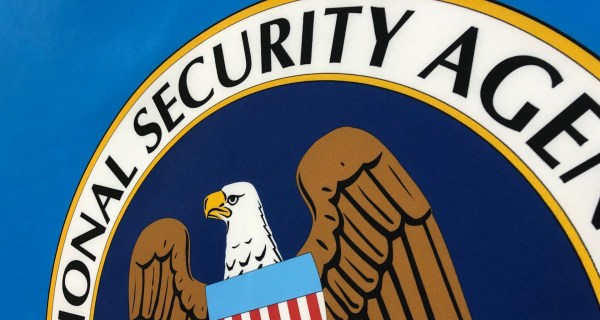 The headquarters of the National Security Agency in Fort Meade, Md. (Photo: Wikipedia)
The headquarters of the National Security Agency in Fort Meade, Md. (Photo: Wikipedia)The panel appointed by President Barack Obama to study and recommend changes to the National Security Agency’s controversial domestic eavesdropping programs maintained a united front Tuesday in the face of questioning by a Senate committee divided on the issue along ideological and party lines.
The President’s Review Group on Intelligence and Communications Technology, led by former counterterrorism and cybersecurity chief Richard Clarke, and Michael Morell, a former deputy director of the CIA, reaffirmed the main conclusions of their Dec. 18 report that NSA’s telephone metadata collection program can and should be reformed, and the government can do so without eliminating the program entirely or jeopardizing national security.
The five-member panel testified Jan. 14 before the Senate Judiciary Committee. The questioning by lawmakers revealed deep ideological divisions, with Democrats focusing primarily on the need for greater transparency and privacy protections, and Republicans arguing the programs are both legal and critical to national security.
The hearing provided a unique look at the behind-the-scenes legal and policy debates that shaped the panel’s overall recommendations, which many believe Obama will largely embrace when he announces Jan. 17 his vision for changes to the NSA programs.
The central challenge facing the panel was to take a hard look at the NSA programs, particularly the telephone metadata collection program authorized under Section 215 of the Patriot Act, and produce a path forward that enhances privacy protections and oversight while simultaneously protecting the intelligence community’s ability to protect the nation from terrorist attacks and other security threats.
“Not one of the 46 recommendations in our report would in our view compromise or jeopardize that ability in any way,” said Cass Sunstein, a panel member and Harvard Law School professor. “On the contrary, many of the recommendations would strengthen that ability explicitly by increasing safeguards against insider threats and by eliminating certain gaps in the law that make it hard to track people under circumstances in which we have reason to believe they don’t wish to do us well.”
Morell, a 30-year veteran of the CIA, surprised committee members on both sides of the aisle when he acknowledged concern about the amount of data being collected under the metadata collection program while arguing the program, in general, should be continued.
“There is quite a bit of content in metadata,” Morell said when questioned about the difference between metadata and content. “When you have the records of the phone calls that a particular individual made, you can learn an awful lot about that person. There’s not in my mind a sharp distinction between metadata and content. It’s more of a continuum.”
Democratic critics of the NSA programs focused on the review board’s findings that the metadata program has not played a significant role to date in uncovering or preventing any significant terrorist plots.
“That is a different statement than saying the program is not important,” Morell said. “It does carry the potential going forward to prevent a catastrophic attack on the United States.”
Among the central recommendations of the review board’s 304-page report, which many believe Obama will embrace officially Jan. 17, is a stipulation that the government rely on prior judicial review before being allowed to issue secret Foreign Intelligence Surveillance Court orders and FBI-issued National Security Letters to compel private companies to hand over information about U.S. persons who may be communicating with noncitizens overseas.
In addition, the president is likely to back the review board’s recommendation that private telephone companies store the data and make it available to the government for valid terrorism investigations, rather than allowing NSA to conduct bulk collection of the data.
While the legal and technical details of such an arrangement may take several years to work out, Morell said it is a viable option, especially because NSA would have the authority under emergency circumstances when a terrorist attack was deemed imminent to search the data first and obtain a warrant after the fact.
University of Chicago law professor Geoffrey Stone said putting the data in private hands would still pose privacy risks, but they would be “a very different order” than if the data continues to be stored by the government.
“The primary danger with the Section 215 program is it leaves open the potential for abuse, not in the use of the data under current authorizations,” Stone said. Requiring private companies to retain the data for at least five years and making the data available to NSA would not eliminate the risk of abuse but would substantially reduce the risk, he said.
“It’s still a question of trade-offs,” Stone said. “There’s always a risk.”




